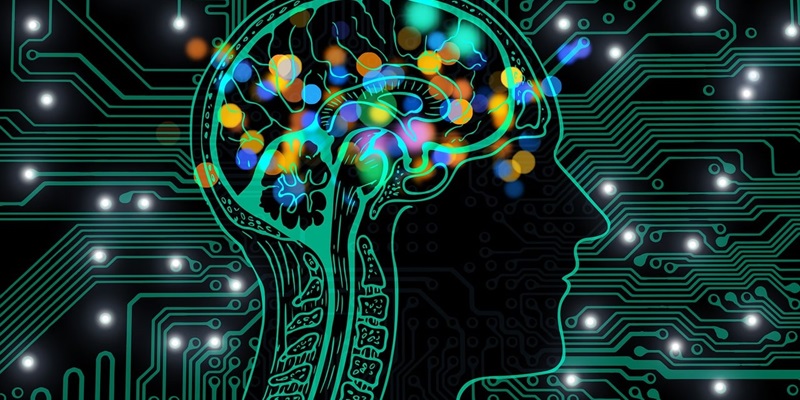Ethical Integration of AIIn the fast-paced world of technology, artificial intelligence (AI) continues to shape the way businesses operate and grow. However, ensuring the ethical integration of AI is crucial to maximize its potential benefits while avoiding potential pitfalls. Grace Zheng, an expert in AI and business, focuses on mapping AI applications, assessing risks, and providing coaching to help businesses scale up through AI marketing and data-driven approaches.
Canon’s Approach: Mapping AI Applications and Assessing Risks
One company that recognizes the significance of mapping AI applications and assessing risks is Canon. As AI technologies advance, Canon actively maps out potential AI applications while proactively aligning with regulations. By understanding the potential risks associated with AI, Canon aims to leverage its benefits responsibly and in compliance with industry standards.
Coaching for Business Scaling Through AI Marketing and Data-driven Approaches
Grace Zheng plays a vital role in coaching businesses to effectively leverage AI for growth. By harnessing AI-based marketing strategies and adopting data-driven approaches, businesses can gain a competitive edge. Zheng’s coaching enables businesses to understand and implement these advanced methodologies, leading to improved customer insights, personalized experiences, and better decision-making.
Common Misconceptions About AI
One common misconception about AI is its limited association with chatbot technology. However, Zheng emphasizes that AI encompasses a diverse range of applications and capabilities that extend far beyond chatbots like ChatGPT. From predictive analytics and automation to computer vision and natural language processing, AI has the potential to revolutionize various aspects of businesses across industries.
The Importance of Continuous Learning in AI
As AI technology rapidly evolves, continual learning is crucial for professionals to stay up to date with the latest advancements. Zheng underscores the need for individuals to consistently upskill and understand the evolving landscape of AI. By attending workshops, webinars, and conferences, professionals can stay ahead of the curve and make informed decisions regarding AI integration in their respective fields.
2024: An Awakening Year for AI in Business
Zheng predicts that 2024 will be an awakening year for businesses, as they increasingly realize the true potential and transformative impact of AI. With the rising popularity of AI-based solutions and the exponential growth of data, companies that embrace AI strategically will likely gain a significant competitive advantage. Therefore, businesses should prepare themselves for the transformative power of AI and start exploring AI integration early on.
Evaluating Individual Skill Sets in Relation to AI
In an AI-driven world, professionals must evaluate their current skill sets to thrive in the changing landscape. Zheng advises individuals to assess their competencies and identify areas where AI-related skills can be acquired or enhanced. From coding and data analysis to understanding algorithms and machine learning, building a foundation in AI-related skills will prove invaluable in the future job market.
Ethical Foundations and Coaching: Enabling Positive Growth through AI
Ethics should be at the core of AI integration into business processes. With the right ethical foundations and coaching, AI can become a positive force for growth. Zheng stresses the importance of considering ethical implications, such as privacy, security, and bias, throughout the AI implementation journey. By integrating AI responsibly, businesses can create long-term value while respecting societal and individual rights.
Highlighting the Transformative Power of AI in Business
The transformative impact of AI in various business domains cannot be overstated. From healthcare and finance to manufacturing and customer service, AI-driven advancements are reshaping industries. For instance, AI-powered diagnostics in healthcare can improve patient outcomes, while intelligent chatbots streamline customer interactions and increase satisfaction. By embracing AI, businesses can unlock new efficiencies, streamline operations, and deliver enhanced experiences to customers.
Harnessing AI’s Potential Through Specialized Skills
To properly harness the potential of AI, it is crucial to develop specialized skills. As AI becomes increasingly integral to business operations, professionals with expertise in AI-related disciplines will be in high demand. Zheng recommends pursuing specialized training or acquiring certifications in areas such as machine learning, deep learning, and natural language processing. By honing these skills, professionals can position themselves as valuable contributors in implementing and managing AI-driven initiatives.
Grace Zheng’s expertise in ethically integrating AI into businesses highlights the importance of mapping AI applications and assessing risks. Through coaching and guidance, businesses can scale up using AI marketing and data-driven approaches. By dispelling misconceptions and emphasizing the need for continual learning, Zheng promotes a proactive approach to harnessing AI’s transformative power. With the right ethical foundations and coaching, AI can become a positive force that drives growth while respecting individual rights and social values. As businesses prepare for an exciting year in 2024, developing specialized AI-related skills will be crucial for successfully navigating the AI-driven future and unlocking new opportunities for innovation and success.

